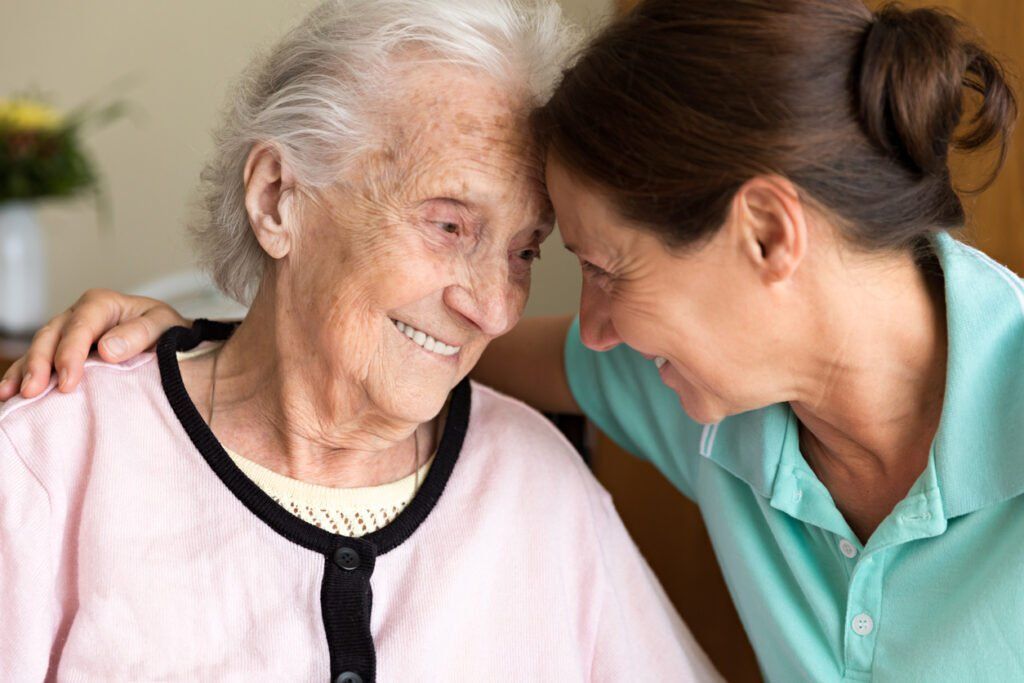When is it time to ask for help when caring for a loved one?
One of the hardest decisions family caregivers make is deciding to ask for help—first there are the guilt feelings, then the “who do I call or ask” and then the final step of taking action to get help. Caregiver burnout can be caused by a myriad of reasons that can diminish your ability to provide good care for your loved one. How do you know if you are on the path to caregiver burnout and what can you do about it?
Warning Signs of Burnout:
Lack of sleep and time for yourself
• Caring for another loved one can lead to constant worry and sleepless nights. The struggle between being a good parent, a spouse or caregiver can lead to thoughts of “What happens if I am not there and my mother falls?” or “Am I neglecting my spouse and children to take care of my Dad?” These thoughts and ones like it can come and go throughout the day but many also experience it during times they should be relaxing or sleeping. The lack of rest and doing fun activities can lead to exhaustion and depression.
Shortage of a Reliable Support Network
• If you are perceived as being the “strong” one in the family and you do not ask for help or voluntarily receive it from your siblings, spouse or other relatives you could experience caregiver burnout. Lack of support from family or friends can cause tension, anger, depression and additional stress. Make sure your support system fully understands what it costs you physically and emotionally to be the main caregiver.
Work and Caregiving
• Juggling work, home and caregiving can be exhausting, stressful and frustrating. It is more and more common for workers to take time off to care for their loved ones. It is also becoming more common for employers to understand their workforce might be caregivers to both their parents and their children. Do not hesitate to talk to your employer about your need for time off—talk to your employer about working remotely when necessary or changing your work hours to make your caregiving needs easier.
If these signs sound familiar then you need help. There are many options available to give you the relief you need. Here are some ways you can do so to make your caregiver duties easier and less stressful.
Community Resources
If your loved one has a medical condition, dementia or a chronic illness such as Parkinson’s seek out a support group. Being able to share your experience with others who are going through the same issues will help alleviate stress and allow you a safe place to vent your frustrations.
Work
• Become familiar with the Family Medical Leave Act. Using the Leave Act can help alleviate the pressure of juggling work and caring for your loved one.
• Have an honest and open conversation with your employer. Ask about Flex time or working remotely if necessary.
Friends and Family
• Recharging is important if you are going to be a caregiver. Ask your spouse or another family member to go to the grocery store or sit with your loved one so you can take a nap or read a book. The smallest of tasks can make a huge difference to your level of energy and stress.
Private Duty Home Care
• Paying for an agency to provide you respite is not always inexpensive but it can make a huge difference to your quality of life. Something as simple as having a caregiver come in 4 hours a day or week can give you a much needed break.
• Although paying an agency is not inexpensive it is the best way to insure your loved one gets the appropriate care and is supervised. Hiring the neighbor or someone out of the newspaper is often an unsafe situation and will only add to your stress.
Geriatric Care Managers
• Even if you join a support group, take time off from work, have agency or family help so you get respite, you might also have a hard time dealing with the stress of knowing your loved one is declining. Although it might be difficult to admit you need someone to talk to about your feelings, a geriatric care manager can provide you with the support you need to reduce your stress, anxiety and depression.
• A care manager can also act as an advocate for your loved one in medical situations. As professionals they can help you navigate the health care maze.
Caregiving is difficult, stressful, frustrating and exhausting. But, as a caregiver you must take care of yourself or you will be too exhausted to take care of your loved one. Kansas City Home Care has been providing respite care for caregivers for almost 25 years. As geriatric professionals we can also provide you with counseling and advocacy if needed. Let us know if we can help by calling 913-341-4800.
The post When is it time to ask for help when caring for a loved one? appeared first on Kansas City Home Care.
REQUEST FREE
IN HOME ASSESSMENT
REQUEST FREE IN HOME ASSESSMENT
We will get back to you as soon as possible.
Please try again later.







Kansas City Homecare provides caregiver support services for seniors who need assistance with everyday living and want to live in their home. Our visiting caregivers can provide meals, implement health programs, run small errands and assist with light housekeeping. We are your choice for premium in-home care in the Kansas City area.
We serve Kansas City, Leawood, Mission Hills, Lee's Summit, Overland Park, Lenexa and Olathe.


